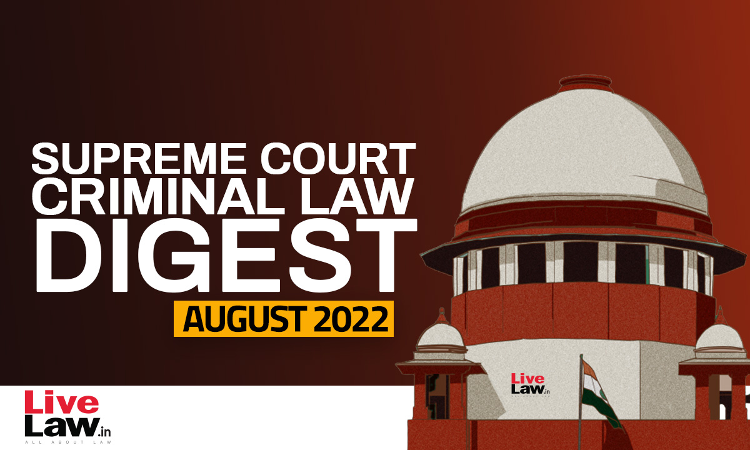Supreme Court Monthly Criminal Digest August 2022 (Citations 647 - 726)
LIVELAW NEWS NETWORK
7 Sept 2022 9:40 AM IST

Next Story
7 Sept 2022 9:40 AM IST
Benami Transactions (Prohibition) Amendment Act, 2016 - The 2016 Amendment Act was not merely procedural, rather, prescribed substantive provisions. (Para 18.1) Union of India v. Ganpati Dealcom Pvt. Ltd., 2022 LiveLaw (SC) 700 Code of Criminal Procedure 1973 -Section 374 - Appeals from convictions - High Court cannot enhance the sentence of the accused without putting the accused to...
